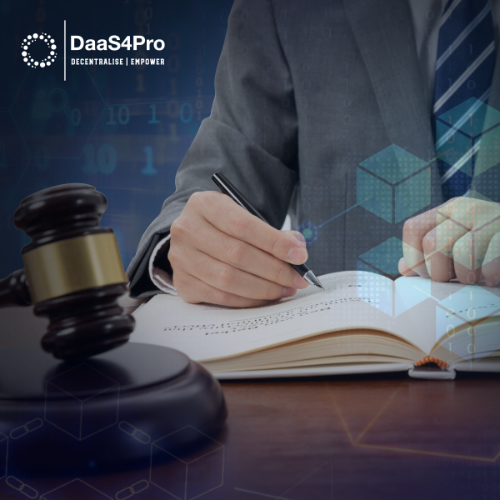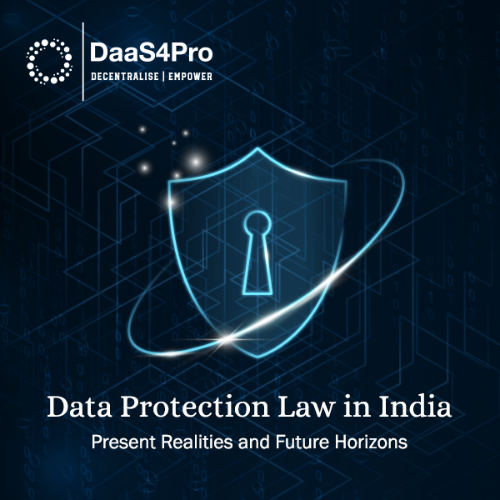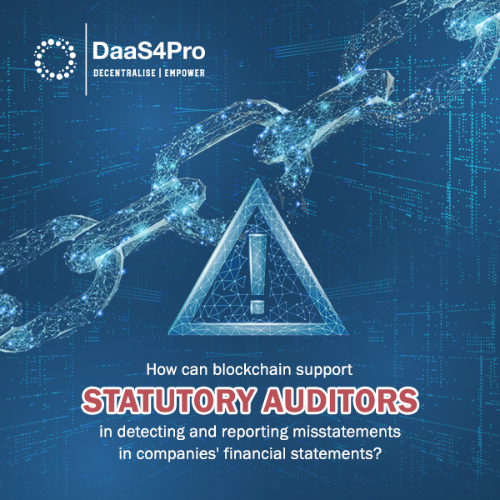

How can blockchain improve adherence to NFRA requirements with respect to Audit Documentation for CAs?
The National Financial Reporting Authority (NFRA) has in recent times increased scrutiny and is keen on stringent enforcement. It strongly focuses on improving audit quality in India to ensure the audits are accurate and meet the highest professional standards.
NFRA has the power to impose significant penalties on auditors for various offenses, including professional misconduct, negligence, and failure to comply with auditing standards. These penalties can range from financial fines to suspension or even debarment from practicing.
In a recent case of a Public Interest company, an order was issued by NFRA to the EQCR partner citing the following:
“The Audit documentation did not evidence objective evaluation, by the EQCR partner, of the significant judgements made and the conclusions reached by the EP in formulating the audit report.”
In case of Public Interest companies, an objective review is not possible by merely ticking a standard working paper template. A checklist relied upon by the EP to evidence his work can only be taken to ensure that no significant matter is overlooked or ignored and not as final evidence of the actual objective review procedures performed by the EQCR partner.
The EQCR partner was found guilty of professional misconduct and was imposed a monetary penalty of Rs.5,00,000/- and was also debarred for 5 years from being appointed as an auditor or internal auditor.
In another case of a Listed company, NFRA pursuant to information received from SEBI, while investigating the professional misconduct, the audit files and some other information were called for from the EP. Despite repeated reminders, the EP did not submit the requisite documents and information.
Thus, NFRA concluded that the EP either had no such documents with him or was unwilling to cooperate with NFRA in discharge of its statutory responsibility under section 132 of the Companies Act
This Order concludes that the failure of the EP to cooperate with NFRA is a professional misconduct under section 132(4) of the Companies Act 2013, read with clause 2 of part-III of first schedule of The Chartered Accountants Act, 1949, i.e. failure to supply the information called for, or failure to comply with the requirements asked for.
The EP was proved guilty of professional misconduct and was imposed a monetary penalty of Rs.20,00,000/- and was also debarred for 10 years from being appointed as auditor or internal auditor.
A key takeaway from the cases cited above is - Audit documentation. It is the key for a successful and defensible audit providing a clear record of the process, supporting the auditor's opinion, and thereby fostering transparency throughout the entire engagement. It is a critical component of a high-quality audit that ensures its credibility and defensibility.
Blockchain technology has the potential to significantly improve audit documentation by offering several key benefits:
Enhanced Security and Immutability:
Blockchain stores data in a tamper-proof manner. Once information is added to a block, it cannot be altered or deleted without disrupting the entire chain. This immutability ensures the integrity of audit documentation, making it highly resistant to fraud or accidental modification.
Improved Audit Efficiency:
Audit trails on a blockchain can be automated, streamlining the process of documenting procedures and findings. This reduces manual effort and the risk of errors associated with traditional paper-based documentation.
Increased Transparency and Accessibility:
All authorized participants on the blockchain network can access the audit documentation. This fosters transparency for auditors, regulators, and stakeholders, allowing for real-time verification of information.
Streamlined Collaboration:
Multiple auditors or reviewers can access and collaborate on the audit documentation simultaneously on the blockchain. This can improve communication and expedite the audit process.
Reduced Storage Costs:
Blockchain can provide a secure and cost-effective way to store audit documentation permanently. This eliminates the need for physical storage facilities and simplifies document retrieval.
DaaS Pro Technologies leverages cutting-edge blockchain technology to streamline processes while adhering to NFRA's regulatory framework, ensuring both innovation and compliance, bridging the gap between innovative blockchain solutions and NFRA compliance, offering a future-proof approach.
We, at DaaSPro Technologies focus on developing a decentralised, highly secure, and tamper-proof software for chartered accountant




